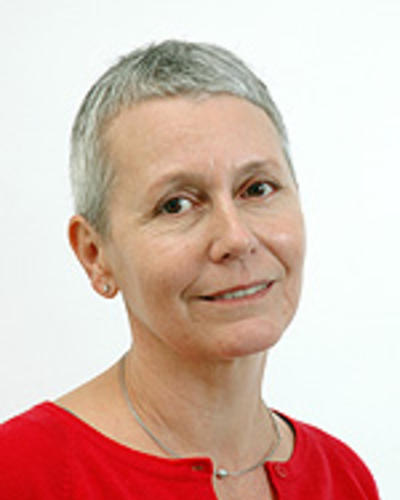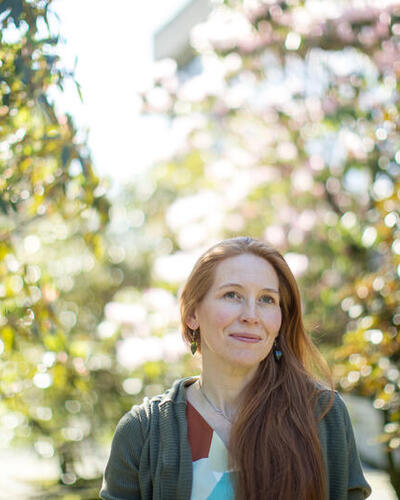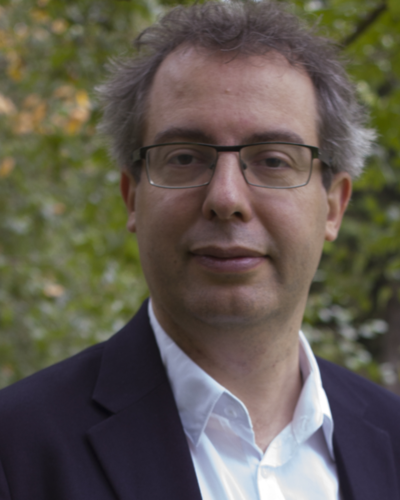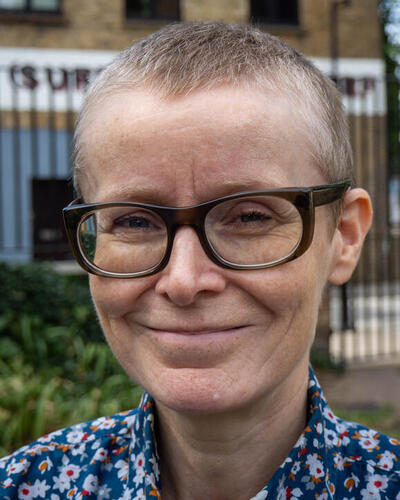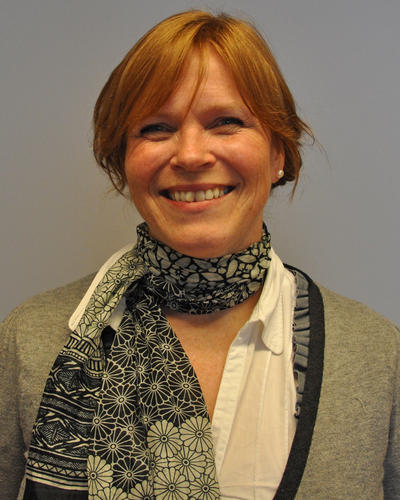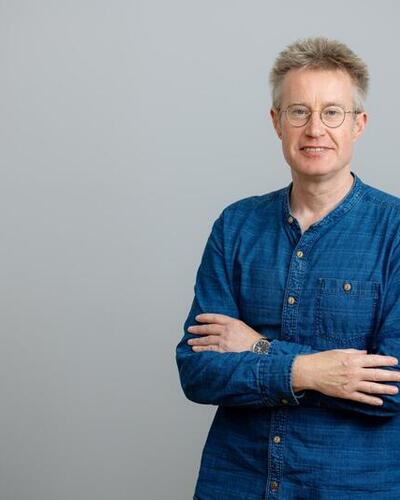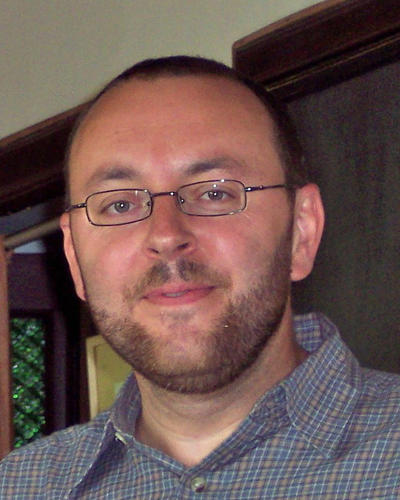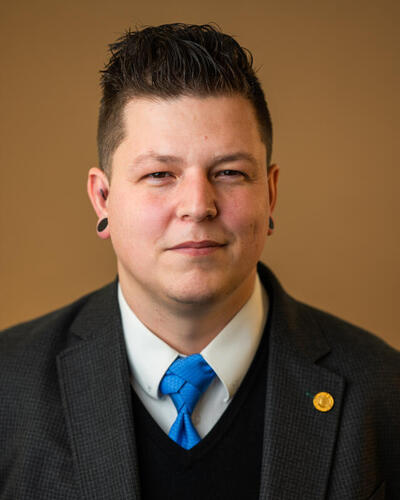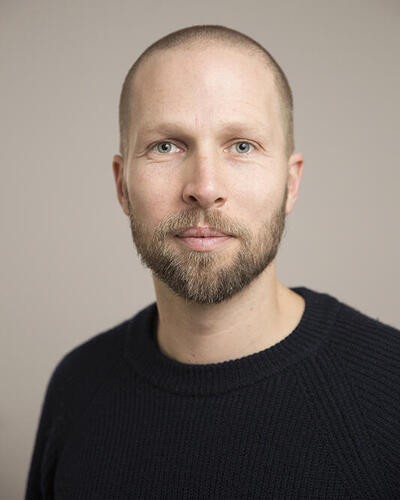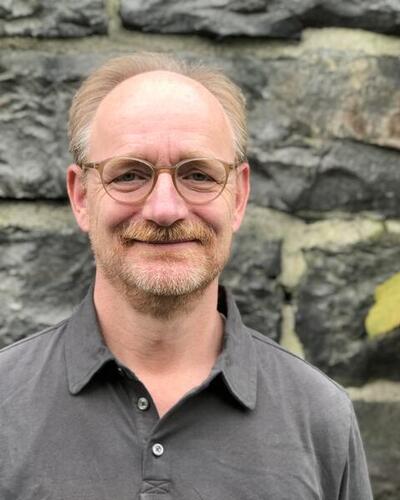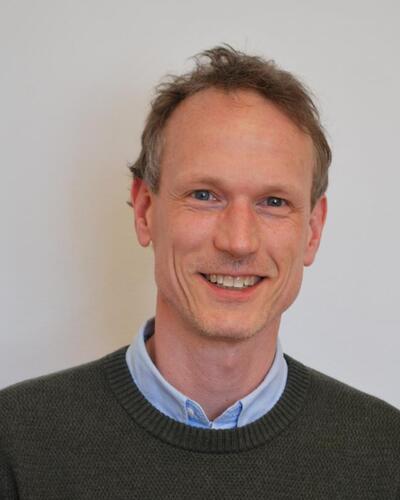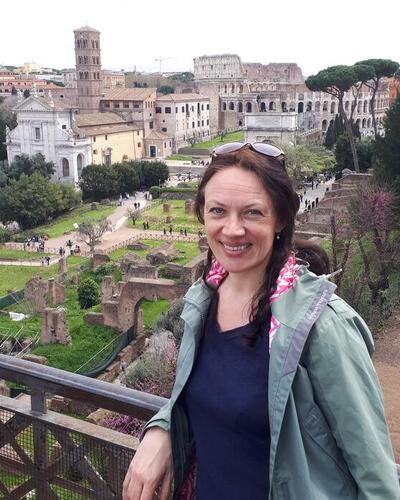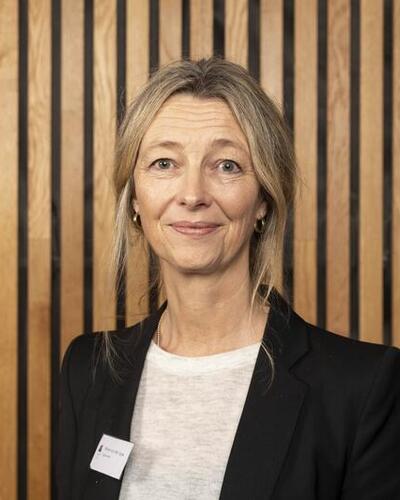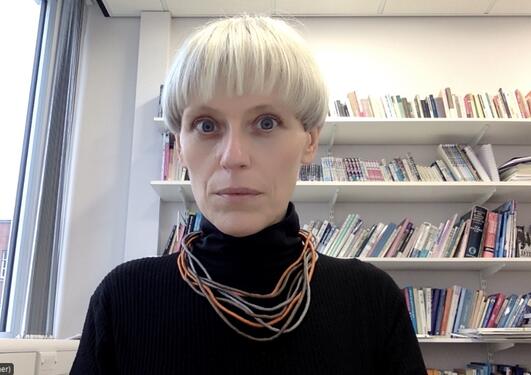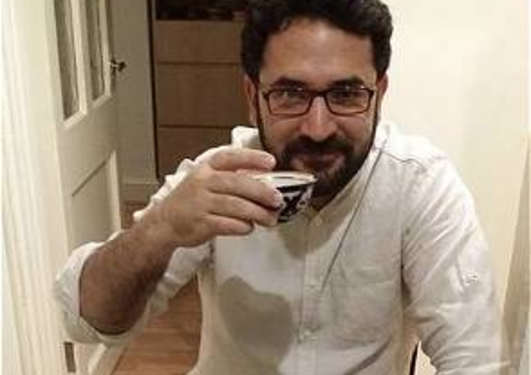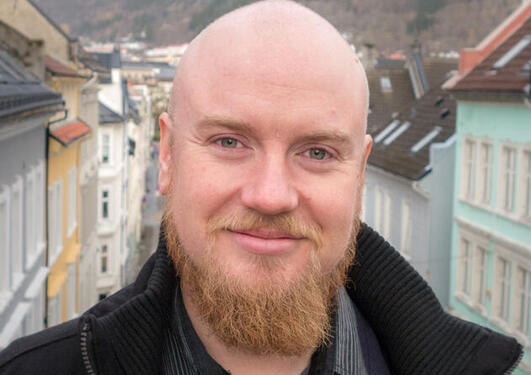Minority Studies
The research group is dedicated to the study of minorities in the widest sense: ethnic, linguistic, religious, of gender, of sexuality, and of race.

Main content
The research group is dedicated to the study of minorities in the widest sense: ethnic, linguistic, religious, of gender, of sexuality, and of race.
Every society has communities that differ in one of these aspects from the majority (defined in numbers and/or in power) of its citizens. These differences are often expressed in terms of hierarchy, practices of exclusion, coercion to assimilate, attempts to include, and in subtler ways such as aesthetic preferences. These ways in which majorities and minorities encounter and interact expose both in majorities and in minorities deep-seated attitudes, values, and mentalities that tend to be invisible until evoked by the encounter between the two.
We explore such theoretical questions and practical and political questions that the minority-majority encounter raises. Other examples of themes we explore are: minority as an identity – real or imagined; minorities as a social and discursive category; and of social dynamics between minorities and majorities and within minorities themselves; minorities within minorities; minority policy issues.
Coorporation
The research group is interdisciplinary. It includes specialists from the different disciplines and fields from the Department of Archaeology, History, Cultural Studies and Religion, from the Faculty of Humanities, and other faculties at the University of Bergen as well as two faculty members from other academic institutions. Moreover, the research group aims to recruit also members in early stages of their careers: Ph.D. candidates and B.A. and M.A. students working on projects on minorities.
Its activities will be geared toward strengthening both the university’s research activities, academic ties across the disciplines, and its educational goals by giving faculty, students, and PhD candidates an inspiring environment to support their work.
Activities 2024
15.02 Thomas Solomon on The musical aestheticization of exile: Zaza (Kurdish-Alevi) musicians between Turkey and Germany
On 15 February, 15:00-17:00, Dokkeveien 2 B – hjørnerommet, Thomas Solomon will present The musical aestheticization of exile: Zaza (Kurdish-Alevi) musicians between Turkey and Germany. The presentation and discussion will be in English.
In his 1984 essay “Reflections on Exile,” the late Palestianian literary scholar and cultural critic Edward Said discussed some aspects of the politics and aesthetics of exilic cultural production. Said draws primarily on examples from literature (novels, poetry), with the result that the asethetic issues he discusses remained primarily at the textual level. This paper puts some of Said’s ideas in dialog with questions more specifically related to the musical production of exilic subjects. As deeply embodied forms of cultural expression combining sound, language, and moving bodies in performance, musical evocations of exile offer other kinds of possibilities for the aesthetic exploration of the condition of exile. Such possibilities are further extended in multimedia productions such as videoclips, in which the musical and the visual interact to produce complex audiovisual texts, apt for the exploration of the contradictions of exile and exilic identity. Musical performance events can be sites for the constitution of exilic subjects and subjectivities, sometimes in unexpected ways, as when exiled musicians are absent from performances of their music in the homeland they have been exiled and displaced from. In such cases, one can speak of a present-absence which powerfully, if paradoxically, embodies the exilic condition.
This presentation uses the music of Metin and Kemal Kahraman as a case study to explore these issues. The Kahraman brothers are from Dersim, a region in southeastern Anatolia that was historically largely autonomous, though it is now incorporated into the Turkish state. The people of Dersim, the majority of whom belong to the heterodox religious group known as the Alevi, constitute an ethnolinguistic and religious minority in Turkey. While they are often included within the more encompassing categories “Kurdish” or “Kurdish-Alevi,” the Zaza have a distinct language, culture and historical sense of identity from the Kurdish-speaking populations that surround them; this identity is profoundly grounded in the sacred geography of their Dersim homeland. For nearly two decades, Kemal Kahraman lived in stateless exile in Berlin, unable to return to Turkey or Dersim. In the music he makes with his brother, Kemal’s personal experience of exile is closely articulated with collective historical exiles and displacements his people have experienced during the early Turkish republican period and more recently during the civil war in the southeast. The brothers’ music explicitly reflects upon and aestheticizes the exilic experience of displacement and longing for home. The paper explores how their music translates the experience of exile into aesthetic form, drawing on the Kahraman brothers’ sound recordings, videos, and a concert the author attended in Istanbul.
09.04: Erica Baffelli: Religious Minorities in Japan
On Tuesday April 9, at 15:00-17:00, Øysteinsgate 3, seminarroom 1. Professor Erica Baffelli, professor of Japanese Studies of Manchester University, will present a draft of her chapter on religious minorities in Japan, to be published in Religious Minorities Online. Please contact Alexander.Haven@uib.no for a draft of the article
10.04: Erica Baffelli: "Networks, volunteers and precarity: a case study of a Buddhist organisation in Tokyo during the Covid-19 pandemic"
On Wednesday April 10, at 14:00-15:30, Øysteinsgate 3 room 418. Professor Erica Baffelli, professor of Japanese Studies of Manchester University, will give a guest lecture “Networks, volunteers and precarity: a case study of a Buddhist organisation in a Tokyo during the covid-19 pandemic”. This meeting serves also as the fagforum for the section of the study of religion.
11.04: Bookseminar about Pinky Hota's Violence and Recognition: Adivasi Indigeneity and Anti-Dalitness in India
On Thursdag April 11, at 16:00-17:00, Øysteinsgate 3, room 418. We will have a book seminar about Pinky Hota's Violence and Recognition: Adivasi Indigeneity and Anti-Dalitness in India (U of Penn Press, 2023), with our guest Erica Baffelli of Manchester University.
24.04: Arkotong Longkumer: The Sonic Guru: Rewben Mashangva Sings the Blues
On Wednesday April 24, at 14:00-15:00, Sydnesplass 12/13 , room 130.
Minority studies and Fagforum Religionsvitenskap hosts Arkotong Longkumer of the University of Edinburgh, School of Divinity.
The presentation charts the work of guru Mashangva, an indigenous rock-fusion artist in the Northeastern Indian state of Manipur. It explores the notion of ‘acoustemology’ as ‘a sonic epistemology of emplacement’ that highlights how guru is texturing the contours of sound as ecologies of creation – a creative process that is charged with energy, knowledge, place-making, and imagination.
Activities 2023
01.02: Discussion of draft of the conceptual introduction to the Religious Minorities Online project
On Wednesday February 1, at 16:15-17:30, Seminarrom 418 at the Department of Archaeology, History, Cultural Studies and Religion (Øysyeinsgate 3), followed by a social gathering.
17.04: Lunch event ‘Recognizing religious minorities’ with Teemu Taira
On Monday April 17, at 12:00-13:00, Seminarrom 1 at the Department of Archaeology, History, Cultural Studies and Religion (Øysteinsgate 3), the Minority Studies research group will host professor Teemu Taira from the University of Helsinki.
The lunch event will concentrate on the roles of legislation, media, and expert knowledge connected to the registration of religious organisations, especially relating to religious minorities. Dr Taira will draw on his research in connection with Finnish cases and draw on more general discussions on the legislative challenges religious minorities face in the Nordics, and beyond. The participants will be able to bring their research interests or particular cases to the discussion.
Recommended reading: Teemu Taira (2022) Chapter 4 The Art of Becoming a Religion: Law, Media and Experts In: Taking ‘Religion’ Seriously: Essays on the Discursive Study of Religion. https://doi.org/10.1163/9789004511682_005
22.05: Poster session junior member research projects
On Monday 22 May, at 9:00-10:30, Seminarrom 418 at the Department of Archaeology, History, Cultural Studies and Religion (Øysteinsgate 3), we will have a poster session to discuss, comment on, and ask about the minority projects of several of our junior members, namely the MA students and PhD candidates Henriette Flaaten, Joanna Zofia Spyra, Fredrik Kolstad Rongved, and Raphael Michaeli.
25.08: Guest lecture: Marisol de la Cadena
On Friday 25 August, at 12:15-14:00, Sydneshaugen skole Auditorium D. For details see: https://www.uib.no/ahkr/164156/guest-lecture-marisol-de-la-cadena
30.08: Discussion about ‘Fritak’ in Norwegian schools, with Lomsdalen, von der Lippe, and Undheim
On Wednesday August 30, 14:15- 15:30, at Seminarrom 418 at the Department of Archaeology, History, Cultural Studies and Religion (Øysteinsgate 3), Christian Lomsdalen, Marie von der Lippe, and Sissel Undheim will present «Hva ønsker religiøse minoriteter fritak fra i norsk skole – og hvorfor?». The presentation will be in Norwegian.
12.09: Discrimination of Religious Minorities, with Michael Stausberg
On Tuesday September 12, 16:15-17:30, Seminarrom 418 at the Department of Archaeology, History, Cultural Studies and Religion (Øysteinsgate 3), followed by a social gathering. A draft of the article will be distributed to members beforehand. Non-members interesting to join please write to Alexander.haven@uib.no to receive a copy.
02.11: Hege Markussen on organising as Alevi in Turkey Today. Reflections from Recent Fieldwork in Ankara
On Thursday 2 November, 16:00-17:30, seminarrom 418 at the Department of Archaeology, History, Cultural Studies and Religion (Øysteinsgate 3), Hege Markussen will present her project in the Alevis. For more information see event.
07.11: Discussing Religious Minorities at Risk: A Book Seminar
On Tuesday 7 November, 15:30-17:00, Øysteinsgt. 3, rom 418, we will be discussing a recent publication, namely:
Basedau, Matthias, Jonathan Fox, and Ariel Zellman, Religious Minorities at Risk (New York, 2023), https://doi.org/10.1093/oso/9780197693940.001.0001. The book is digitally available through our library website.
13.11: A viewing and discussion of Elsewhere, a documentary on the Turkish Dönmeh, with documentary maker Melis Birder
On Monday 13 November, 16:00-18:00 in Sem. rom 1, Øysteinsgate 3, the research group Minority Studies has organized together with Det jødiske samfunn Bergen a screening of parts of the documentary that the Turkish documentary maker Melis Birder is making on the Dönmeh, a small Turkish religious minorities descended from Jews who in the late seventeenth century converted to Islam but still follow their Jewish Messiah, Sabbatai Tsevi. Introduction and response by Alexander van der Haven, followed by a discussion. The presentation and discussion will be held in English.
For more information check out event.
14.11: Guest lecture: Ragnhild Johnsrud Zorgati on Islam in contemporary Scandinavian literature and rap
On Tuesday 14 November, 14:30-15:30, in HF building room 400, professor Ragnhild Johnsrud Zorgati (UiO) will hold a guest lecture on Islam in contemporary Scandinavian literature and rap. The lecture will be in Norwegian. The lecture is offered by the Religion and Literature research group and Minority Studies.
14.11: A viewing and discussion of Baglar, a documentary on a Kurdish basketball team in Southeastern Turkey
On Tuesday 14 November, 16:00-18:00, in Sem. rom 1, Øysteinsgate 3, we will watch and discuss with the Turkish documentary maker Melis Birder the documentary Baglar, directed by Berke Bas and Melis Birder, about how “an underdog basketball team from hard scrabble Diyarbakir in Southeastern Turkey goes beyond winning games in their mission to rise above prejudice, poverty and political turmoil created by the decades long conflict between the Turkish state and Kurdish rebels who are fighting for local autonomy and cultural rights.” The presentation and discussion will be held in English.
For more information check out event.
22.11 Guest lecture: Nauroz Khan on Swedish Afghan Pashtuns
On Wednesday 22 november, 16:15-17:30, in Øysteinsgate 3, rom 418, Nauroz Khan, doctoral researcher from Kingston University London, will present “The Transnational Lives of Swedish Afghan Pashtuns: The Challenges of Double Migration, Cultural and Kinship Maintenance and Integration in Swedish Society.” A Selections of writings will be distributed. Associate Professor Aziz Hakimi (HVL), will be the respondent. The presentation and discussion will be held in English.
15.12 István Keul on Ethno-Religious Communities in East-Central Europe: Structures and Processes of Minoritization
On 15 December, 15:00-17:00, at Dokkeveien 2B - hjørnerommet. István Keul will look at consequences of changing statal configurations and shifting political structures for the majority-minority relations of religious communities living in a region that was successively part of the medieval kingdom of Hungary (up to 1526), the Transylvanian Principality (1526-1687), the Habsburg Empire (1687-1867), Hungary (1867-1918), and Romania (1918 to the present). The main focus lies on the Romanian communities in the region and the connected processes of religious institutionalization and differentiation from the early modern period to the present. The presentation and discussion will be in English.
Student group members
- Fredrik Kolstad Rongved, M.A. student Religious Minorities, UiB
- Thomas Snell, M.A. student Religious Minorities, UiB
- Henriette Flaaten, M.A. student teachers’ program Study of Religion, UiB
